The Blu-ray disc association said Thursday that it's aiming to replace the traditional DVD storage format within the next three years.
Blu-ray, which offers five times more storage capacity than DVDs for storing high definition films and other content, will first have to reign supreme over the rival HD-DVD format, which is similarly fighting to emerge as the successor to DVD.
According to Reuters, Blu-ray has recently established a commanding lead over HD-DVD in the number of available players on the market, thanks largely to sales of Sony's PlayStation 3 video games console which come with a built-in Blu-ray player. The format has also garnered the exclusive support of five out of eight major Hollywood studios while just one studio, Universal, has thrown its weight behind HD-DVD.
Blu-ray backers such as 20th Century Fox also claim that weekly sales of its discs are outpacing HD-DVD titles by more than three times. "If you look at the top 25 selling DVDs last year, 23 were released on Blu-ray," Fox's Steve Feldstein told the New York Post. "Just two were exclusive to HD DVD."
HD-DVD supporters, however, have yet to concede. They are encouraging consumers to not only focus on the big blockbuster title releases from Hollywood, but also those from regional film houses in Europe and Asia which plan to deliver their titles on HD-DVD because it is cheaper and simpler.
Still, some experts are ready to call the bout and recommend that consumers buy Blu-ray players. Alison Casey, who analyzes consumer trends for London-based Understanding & Solutions, told the Post that she expects retailers to pull the plug on HD-DVD sometime next year.
For its part, Apple sits on the Blu-ray Disc Association Board but has thus far deferred on committing exclusively to either format when it comes to hardware support in its Mac line of personal computers. The Cupertino-based company seems content in allowing the battle to run its course and is rumored to offer support both formats through its software in the interim.
 AppleInsider Staff
AppleInsider Staff
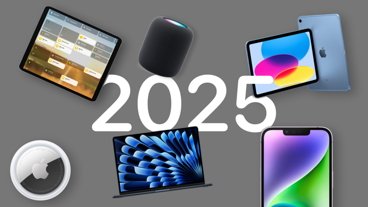

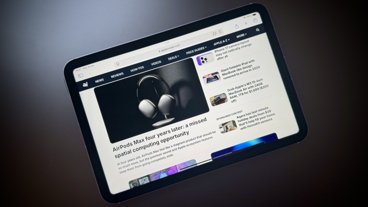

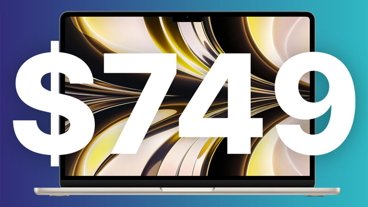

-m.jpg)






 Thomas Sibilly
Thomas Sibilly
 William Gallagher
William Gallagher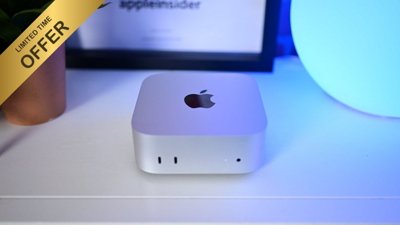
 Christine McKee
Christine McKee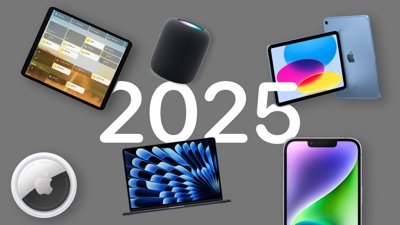
 Wesley Hilliard
Wesley Hilliard
 Andrew O'Hara
Andrew O'Hara
 Sponsored Content
Sponsored Content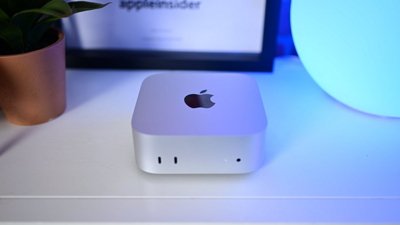







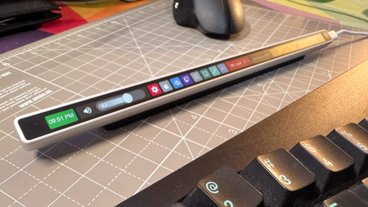

87 Comments
How would this be possible?
Is the government giving out free HDTV in 3 years? When you walk through Target or Walmart you see DVD bins with GOOD movies for $7. How is the consumer going to take looking at the HD version for $27 as a good value?
You can rip your DVDs. Great for the Disney flick that your kids want to play incessantly. To date none of these HD formats allow for safely backing up your disc to a HDD.
Considering I can still easily buy VHS leads me to believe that there's a snoballs chance in Hell that any HD format can supplant DVD in a measly 36 months.
Sony hasn't had any success beyond the Playstation 2 yet they think they can beat DVD in 3yrs? Fuggedeboutit.
How would this be possible?
Is the government giving out free HDTV in 3 years? When you walk through Target or Walmart you see DVD bins with GOOD movies for $7. How is the consumer going to take looking at the HD version for $27 as a good value?
You can rip your DVDs. Great for the Disney flick that your kids want to play incessantly. To date none of these HD formats allow for safely backing up your disc to a HDD.
Considering I can still easily buy VHS leads me to believe that there's a snoballs chance in Hell that any HD format can supplant DVD in a measly 36 months.
Sony hasn't had any success beyond the Playstation 2 yet they think they can beat DVD in 3yrs? Fuggedeboutit.
It is the same thing as the players why pay $800 for a blue-ray player when a ps3 is only 599 or 699 and you can run Linux on it. Also there are DVD player for under $50.
How would this be possible?
Is the government giving out free HDTV in 3 years? When you walk through Target or Walmart you see DVD bins with GOOD movies for $7. How is the consumer going to take looking at the HD version for $27 as a good value?
You can rip your DVDs. Great for the Disney flick that your kids want to play incessantly. To date none of these HD formats allow for safely backing up your disc to a HDD.
Considering I can still easily buy VHS leads me to believe that there's a snoballs chance in Hell that any HD format can supplant DVD in a measly 36 months.
Sony hasn't had any success beyond the Playstation 2 yet they think they can beat DVD in 3yrs? Fuggedeboutit.
Surrender. You are defeated.
This is old news and Apple is barely mentioned.
About the PS3: Once more people start loading Linux-like OS onto their PS3's i'll follow their lead. Although it's not a legal marketing move, but think about it... something that plays, blu-ray, video games, 1080P content, and with Linux tacked on, you basically have a computer OS with even more media codecs. So you get all that for $599? heck ya sign me up
Another thing I found funny was that... remember back in the day, when you could buy a DVD-ROM or a DVD Burner... the same cannot be said for blu-ray, you HAVE to buy a Blu-ray Burner for a computer system, they dont make a blu-ray rom drive... I hope that changes. I wouldn't mind watching BD discs on my mac = )
<sarcasm>Yes, we all remember how quickly the 1.4 MB floppy was cast aside once superior storage formats were brought into the marketplace.</sarcasm>
I'm sure Blu-Ray will replace standard def DVD just as quickly.